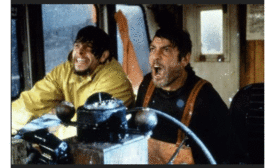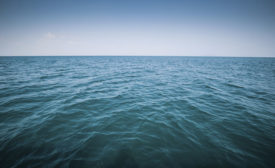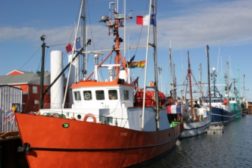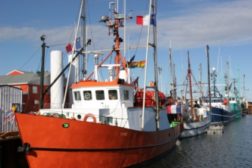Home » Keywords: » fishing industry
Items Tagged with 'fishing industry'
ARTICLES
Inside NIOSH:
Life-saving equipment & training critical to surviving a fishing vessel disaster
August 7, 2018
Food safety
FDA sued over approval of Franken-fish
Coalition says genetically engineered salmon threatens environment
April 1, 2016
Become a Leader in Safety Culture
Build your knowledge with ISHN, covering key safety, health and industrial hygiene news, products, and trends.
JOIN TODAYCopyright ©2025. All Rights Reserved BNP Media.
Design, CMS, Hosting & Web Development :: ePublishing




